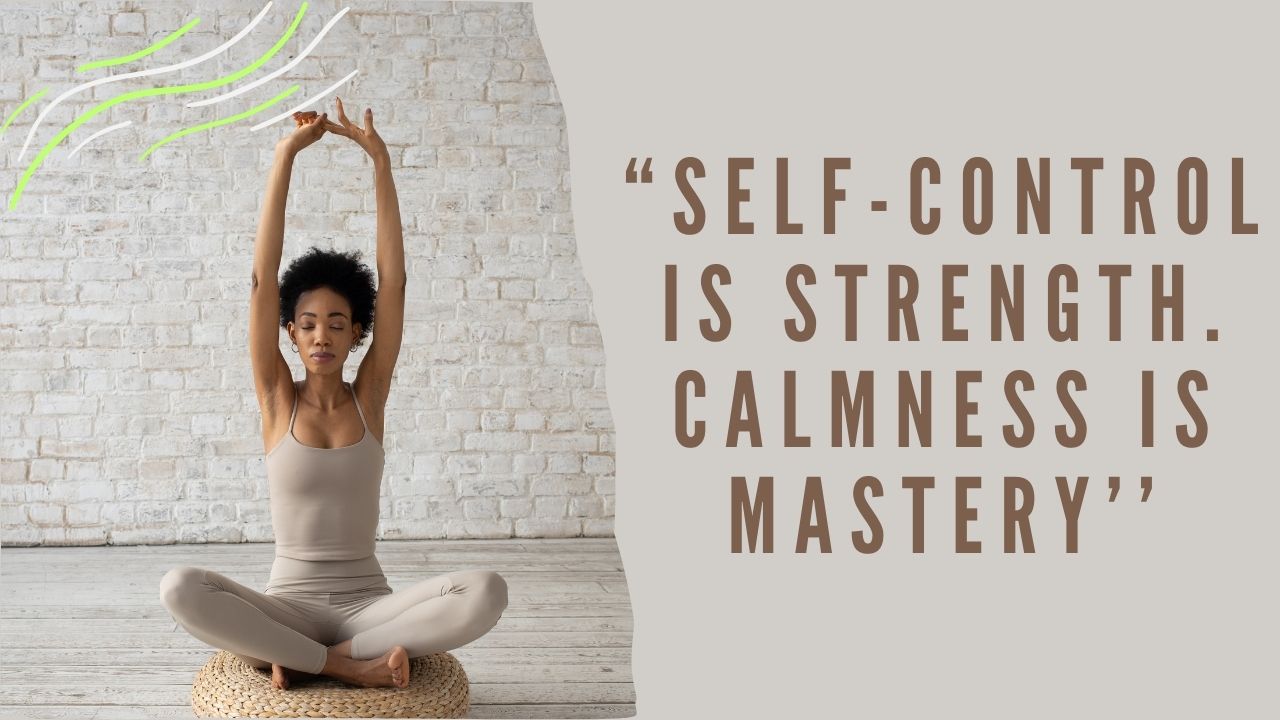1. Understanding Self-Control
The Importance of Self-Control
Self-control is a fundamental aspect of emotional intelligence and plays a crucial role in achieving success in both personal and professional domains. Research has shown that individuals with high levels to experience greater overall well-being, better relationships, and higher levels of achievement.
Developing Self-Control
Developing self-control requires practice and discipline. Strategies such as setting clear goals, managing stress effectively, and cultivating mindfulness can help strengthen muscles over time. Additionally, learning to delay gratification and resist instant gratification can significantly enhance one’s self-control abilities.
Self-Control in Decision-Making
In decision-making processes, self-control enables individuals to weigh the consequences of their actions and make choices that align with their long-term goals. By exercising , individuals can avoid impulsive decisions that may lead to regret or negative outcomes, and instead, make informed choices that contribute to their overall well-being and success.
2. Embracing Calmness
What is Calmness?
Calmness refers to a state of tranquility and inner peace, characterized by a sense of clarity and serenity. It involves maintaining composure and perspective even in the face of challenges or adversity.
The Power of Calmness
Calmness is not merely the absence of chaos but rather the ability to remain centered and grounded amidst turbulent situations. It allows individuals to make rational decisions, communicate effectively, and navigate life’s ups and downs with grace and resilience.
Cultivating Calmness
Cultivating calmness involves practices such as meditation, deep breathing exercises, and mindfulness techniques. By regularly engaging in these practices, individuals can train their minds to remain calm and focused, even in stressful situations. Additionally, fostering a positive mindset and practicing gratitude can contribute to a sense of inner calmness and well-being.
Benefits of Calmness
Embracing calmness offers numerous benefits for mental and emotional health. Studies have shown that individuals who cultivate calmness experience reduced levels of stress, anxiety, and depression. Furthermore, calmness enhances cognitive function, creativity, and problem-solving abilities, allowing individuals to approach challenges with clarity and confidence.
3. The Path to Mastery
Integrating Self-Control and Calmness
The synergy between self-control and calmness is the key to personal mastery. By harnessing the power to manage impulses and emotions, and cultivating calmness to maintain inner peace and clarity, individuals can unlock their full potential and achieve mastery in various aspects of life.
Achieving Goals
Self-control allows individuals to stay focused on their goals and resist distractions or temptations that may derail their progress. Calmness provides the clarity and perspective needed to overcome obstacles and persevere in the face of challenges. By integrating self-control and calmness into goal-setting processes, individuals can enhance their motivation, productivity, and overall success.
Managing Stress
In today’s fast-paced world, stress management is essential for overall well-being. By practicing and maintaining calmness, individuals can effectively manage stress and prevent it from negatively impacting their mental and physical health. Techniques such as deep breathing, progressive muscle relaxation, and mindfulness meditation can help individuals alleviate stress and cultivate a sense of inner calmness and resilience.
Building Resilience
Resilience is the ability to bounce back from adversity and thrive in the face of challenges. By cultivating and calmness, individuals can build resilience and adaptability, allowing them to navigate life’s inevitable ups and downs with grace and confidence. Resilient individuals are better equipped to cope with setbacks, overcome obstacles, and pursue their goals with determination and perseverance.
FAQs
How can I improve my self-control?
It requires practice and discipline. Setting clear goals, avoiding temptations, and practicing mindfulness can help strengthen self-control.
What are some techniques for cultivating calmness?
Techniques for cultivating calmness include meditation, deep breathing exercises, and mindfulness practices. These techniques can help individuals stay centered and grounded amidst chaos.
How does self-control contribute to success?
Is a key predictor of success in various domains, including academic achievement, career advancement, and personal relationships. It allows individuals to stay focused on their goals and make rational decisions that align with their long-term objectives.
Can calmness be cultivated?
Yes, calmness can be cultivated through regular practice of relaxation techniques such as meditation, deep breathing, and mindfulness. By training the mind to remain calm and centered, individuals can enhance their ability to maintain composure in challenging situations.
What is the relationship between self-control and resilience?
Self-control and resilience are closely intertwined, as both involve the ability to regulate emotions and adapt to adversity. By developing skills and cultivating calmness, individuals can enhance their resilience and bounce back from setbacks with greater ease.
How can I apply the concept of “self-control is strength. calmness is mastery. you – tymoff” in my daily life?
You can apply this concept in your daily life by practicing in decision-making, managing your emotions effectively, and cultivating inner calmness through mindfulness and relaxation techniques. By doing so, you can unlock your full potential and achieve mastery in various aspects of life.
Conclusion:
In conclusion, the concept of “self-control is strength. calmness is mastery. you – tymoff” holds profound wisdom that can guide us towards personal growth and success. By embracing , cultivating calmness, and integrating these principles into our daily lives, we can unlock our full potential and achieve mastery in any endeavor we pursue.




